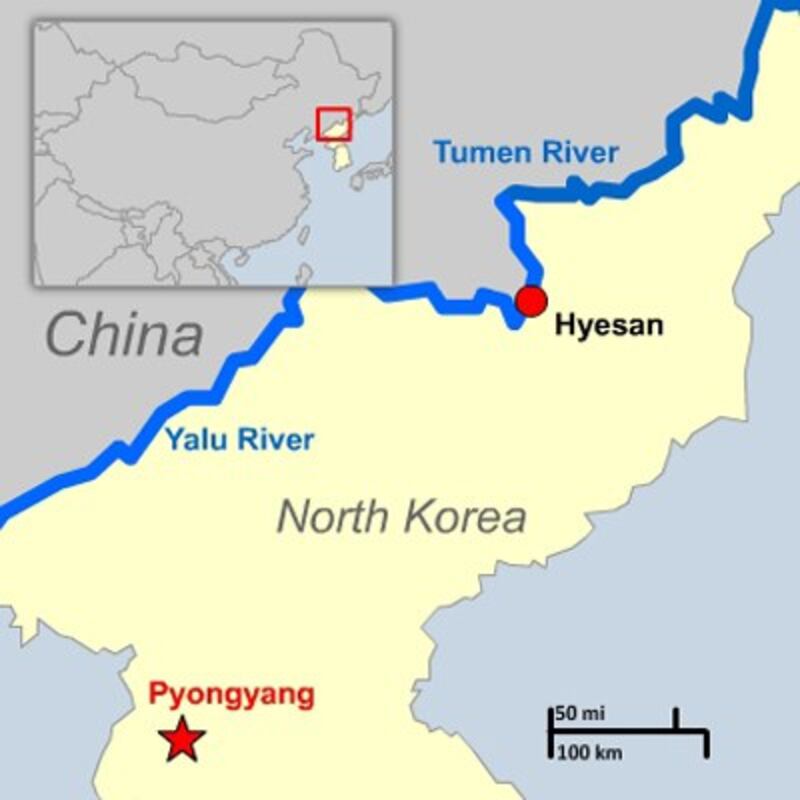North Korea’s leader Kim Jong Un has launched an unprecedented multi-agency campaign to crack down on illegal cell phones along the country’s border with China by tracking signals and sending security forces to nab the callers, according to sources in the area.
The move is aimed at closing off one of the few connections to the outside world from isolated North Korea, which maintains its own domestic cell phone network that does not allow international calls or Internet.
In areas close to the country’s northern border with China, North Koreans using phones smuggled in from the neighboring country can connect to Chinese cell phone towers to make outside calls.
But since the beginning of October, authorities have tightened restrictions on the phones and begun using radio monitoring stations to spot illegal cell phone signals, according to a source in North Hamgyong province.
Once a signal is detected, a search force is immediately dispatched to the area to nab the culprit, the source said, speaking on condition of anonymity.
In addition to radio monitoring stations, military bases and the national police department's special task forces are involved in the crackdown effort, the source said.
“They are mobilizing even the posts of the Worker-Peasant Red Guards,” the country’s civilian defense force, the source said.
Previous curbs on illegal cell phones had not involved so many agencies or such a sophisticated method of detecting signals and finding callers, the source said.
Top-down directive
A source in Yanggang province said the tightened restrictions come on the orders of Kim, who took over as leader of the nuclear-armed but impoverished state following the December death of his father, who had ruled with an iron fist for 17 years.
Kim recently visited the national security department and directed authorities to carry out a multi-agency crackdown on the illegal cell phones, according to the source. State media reported on Oct. 6 that Kim had visited the department.
“Kim Jong Un ordered authorities to use the combined efforts of private, military, and law enforcement institutions to confiscate every single illegal cell phone,” the source said, speaking on condition of anonymity.
At the meeting, officials told Kim that previous efforts to smash the illegal cell phone network had successfully reduced the number of people illegally crossing the river border into China, according to the source.
The 1,400 kilometer (900 mile) border, marked by the Tumen and Yalu Rivers, is regularly crossed by illicit traders bringing black market goods to North Korea, as well as by refugees fleeing the country to China.

Widely used
The source in North Hamgyong province said authorities had likely resorted to using the signal-tracking method to catch illegal cell phone users because border area residents had been going deep into the mountains to make calls.
Another source in North Hamgyong province said that reliance on the illegal phones was so widespread in border areas that it would be difficult to eliminate the practice.
“No matter how tough the crackdown measures get, there is a limit,” the source said, speaking on condition of anonymity.
“You cannot watch the entire border area to catch a single cell phone user.”
The number of illegal Chinese phones used in North Korea—where the official cell phone network has over a million subscribers—is unknown, but sources from the country say they are widely used in border towns, particularly by cross-border traders who rely on them to do business in China.
Some border residents have made a business of lending illegal cell phones to others to make calls to friends or relatives in China, South, Korea, Japan, and other countries.
North Korea’s official domestic mobile phone service was first launched in the capital Pyongyang in 2002, but banned two years later after a phone was used to trigger a deadly explosion at a northern train station.
Since launching a 3G cell phone service in a surprise deal with Egyptian company Orascom in 2008, the official network—which allows only handsets provided by North Korea’s Koryolink—has expanded coverage to about one fifth of the country’s territory.
Reported by Sung Hui Moon for RFA’s Korean service. Written in English by Rachel Vandenbrink.
